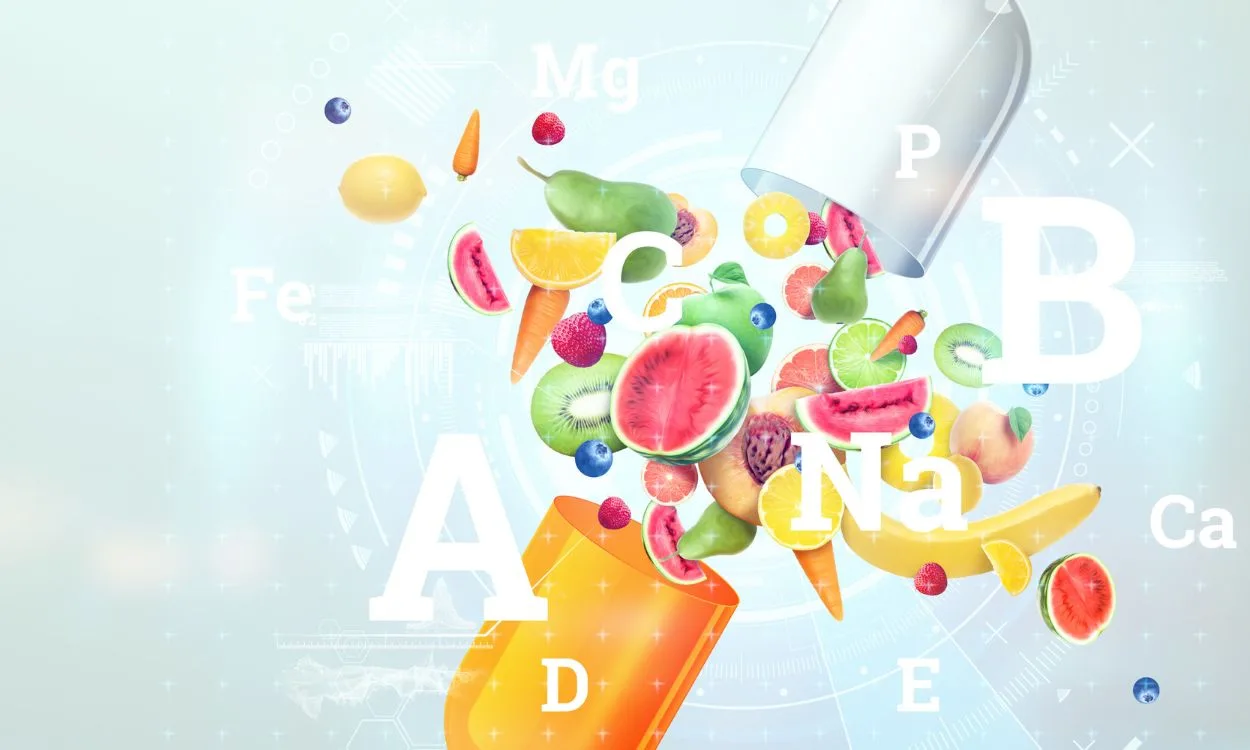What is the recommended daily intake of vitamins and minerals?
Vitamins and minerals are essential nutrients that our bodies need in small amounts to function properly. They play a crucial role in various bodily functions, including growth, metabolism, immunity, and overall health. While a balanced diet usually provides sufficient amounts of vitamins and minerals, it’s important to understand their recommended daily intake to ensure optimal health and well-being.
Vitamins:
- Vitamin A: The recommended daily intake of vitamin A varies based on age and gender. For adult men, it is around 900 micrograms (mcg) Retinol Activity Equivalents (RAE), while adult women need about 700 mcg RAE. Vitamin A is important for maintaining healthy vision, supporting immune function, and promoting cell growth and development.
- Vitamin B complex: The B vitamins include thiamine (B1), riboflavin (B2), niacin (B3), pantothenic acid (B5), pyridoxine (B6), biotin (B7), folate (B9), and cobalamin (B12). The recommended daily intake varies for each B vitamin and depends on age and gender. For example, adult men typically need about 1.3-1.5 milligrams (mg) of thiamine, riboflavin, and vitamin B6, while adult women require about 1.1-1.3 mg. B vitamins are important for energy production, brain function, red blood cell production, and metabolism.
- Vitamin C: The recommended daily intake of vitamin C is around 40-90 mg for adults. Vitamin C is a powerful antioxidant that plays a vital role in collagen synthesis, immune function, wound healing, and iron absorption.
- Vitamin D: The recommended daily intake of vitamin D is about 400-800 International Units (IU) for most adults. However, individuals with limited sun exposure or certain medical conditions may require higher doses. Vitamin D is crucial for bone health, immune function, and overall well-being.
- Vitamin E: The recommended daily intake of vitamin E is approximately 15 mg Alpha-Tocopherol Equivalents (ATE) for adults. Vitamin E acts as an antioxidant, protecting cells from damage and supporting immune function.
- Vitamin K: The recommended daily intake of vitamin K is around 90-120 mcg for adults. Vitamin K is essential for blood clotting and bone health.
Minerals:
- Calcium: The recommended daily intake of calcium for adults is about 1000-1300 mg. Calcium is vital for building strong bones and teeth, muscle function, nerve transmission, and blood clotting.
- Iron: The recommended daily intake of iron varies based on age and gender. Adult men typically need about 8-11 mg, while adult women require 18-21 mg. Iron is essential for oxygen transportation, energy production, and immune function.
- Zinc: The recommended daily intake of zinc is approximately 8-11 mg for adult men and 8 mg for adult women. Zinc is involved in numerous enzymatic reactions, immune function, wound healing, and DNA synthesis.
- Magnesium: The recommended daily intake of magnesium is around 400-420 mg for adult men and 310-320 mg for adult women. Magnesium is important for muscle and nerve function, energy production, and bone health.
- Potassium: The recommended daily intake of potassium is about 2600-3400 mg for adults. Potassium is crucial for maintaining fluid balance, proper muscle function, and heart health.
- Sodium: The recommended daily intake of sodium is approximately 1500-2300 mg for adults. Sodium plays a role in fluid balance, nerve transmission, and muscle function. However, excessive sodium intake should be avoided, as it can contribute to high blood pressure and other health issues.
It’s important to note that these recommended daily intakes are general guidelines and may vary based on individual needs, medical conditions, and lifestyle factors. Consulting with a healthcare professional or registered dietitian can help determine the specific vitamin and mineral requirements for your unique situation.
Now that you have a good understanding of the recommended daily intake of vitamins and minerals, it’s time to take control of your health and fitness goals. Fitpaa, an end-to-end AI-driven metabolism monitoring and management technology, can help you achieve your health and fitness goals with guaranteed results.
With Fitpaa’s personalized Fitpaa Capsule, you’ll have access to a team of expert fitness coaches, nutritionists, and doctors who will tailor a plan based on your metabolism, health goals, lifestyle, and eating habits. The Fitpaa Capsule combines medical therapy, medical exercise therapy, medical nutrition therapy, and cognitive behavior therapy to optimize your metabolism and help you achieve your goals.
Downloading the Fitpaa app will provide you with all the necessary tools to follow your Fitpaa Capsule, including a virtual workout trainer, diet tracker, performance tracking, progress tracking, and real-time guidance. The Fitpaa mobile app makes it easy to stay on track and receive support from your fitness planner throughout your journey.
Don’t wait any longer to prioritize your health and fitness. Download the Fitpaa app now and experience the joy of achieving your goals with guaranteed results. Your well-being is our mission, and we are here to support you every step of the way. Let Fitpaa help you transform your life and become the best version of yourself.









